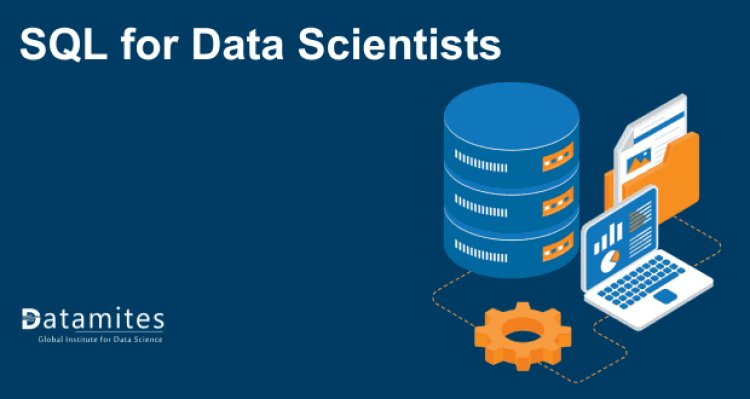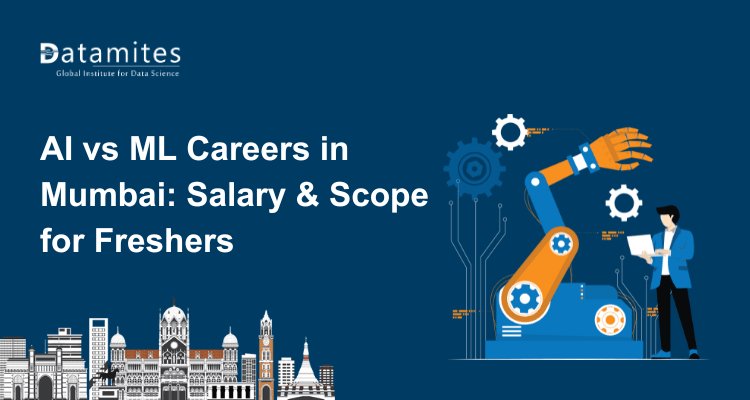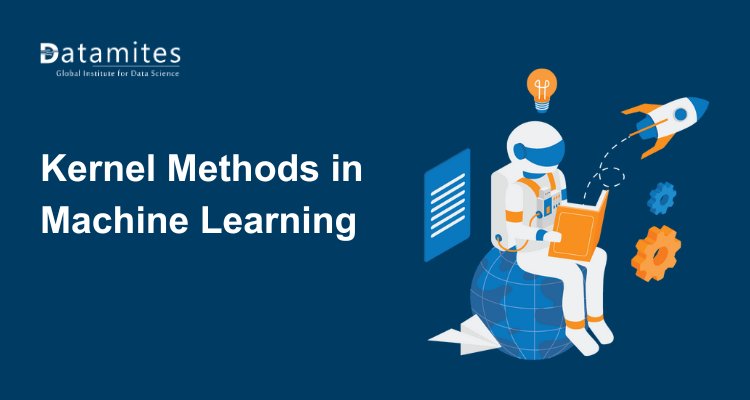SQL for Data Scientists

In the domain of data science, SQL (Structured Query Language) stands as an essential tool. Data scientists depend on SQL to handle and manipulate data within relational databases. Whether you're a beginner or a seasoned expert, mastering SQL is vital for achieving success in this field.
SQL is the backbone of database management. It empowers users to efficiently query, update, and administer data. For data scientists, SQL is the conduit between raw data and insightful analysis. By becoming proficient in SQL, you can uncover meaningful patterns and trends within large datasets, thereby enhancing your analytical prowess.
This blog post will guide you through the significance of SQL for data scientists, highlighting its importance, ease of learning, essential commands, and practical applications. Join us on a transformative journey to excel in SQL mastery and enhance your proficiency in data science.
SQL Data Types
Data types are essential in SQL because they specify the nature of data that can be stored in a database table. Understanding SQL data types is crucial for effective data manipulation and analysis.
SQL offers a variety of data types to cater to different needs:
- Numeric Types: These include integers, decimals, and floating-point numbers.
- Character Types: These cover fixed-length (CHAR) and variable-length (VARCHAR) strings.
- Date and Time Types: These include DATE, TIME, and TIMESTAMP for handling temporal data.
- Boolean Type: This represents true or false values.
Choosing the appropriate data type ensures optimal efficiency in storing and accessing data. For instance, using DATE for date-related fields allows for accurate date calculations and comparisons.
Understanding and selecting the right data types is a foundational skill for data scientists. It ensures that your databases are optimized for performance and that your queries return accurate results.
Read these articles:
How Easy is SQL to Learn?
Many aspiring data scientists wonder about the difficulty of learning SQL. The good news is that SQL is relatively straightforward to grasp, especially with a structured approach and practice.
Here’s why SQL is easy to learn:
- Simple Syntax: SQL's syntax is clear and logical, making it accessible even for beginners.
- Declarative Nature: SQL focuses on "what" you want to retrieve, rather than "how" to retrieve it, simplifying the learning process.
- Abundant Resources: There are countless tutorials, courses, and books available to help you learn SQL step by step.
For those pursuing a data science course traininig or data science training certification, SQL is often a core component. These programs typically include comprehensive modules on SQL, ensuring you gain hands-on experience and confidence in using it.
By dedicating time to practice and leveraging available resources, you can quickly become proficient in SQL, opening doors to advanced data analysis and manipulation techniques.
Reasons to Learn SQL for Data Scientists
Why should data scientists invest time in learning SQL? Here are compelling reasons:
- Data Access and Manipulation: SQL allows you to access and manipulate large datasets stored in relational databases efficiently.
- Data Integration: SQL is essential for integrating data from multiple sources, enabling comprehensive analysis.
- Industry Standard: SQL is widely used across industries, making it a valuable skill for data science professionals.
Mastering SQL equips data scientists with the prowess to adeptly manage and manipulate data. It enables them to perform complex queries, join tables, and aggregate data, all of which are crucial for insightful analysis.
Additionally, proficiency in SQL frequently serves as a foundational requirement for mastering cutting-edge data science tools and technologies. By mastering SQL, you build a solid foundation for learning other data analysis techniques and tools, enhancing your overall expertise.
Read these articles:
- What is the Work of a Data Scientist?
- Exploring Core Data Science Concepts
- A Comprehensive Guide on the Data Science Lifecycle
Essential SQL Commands for Data Scientists
To excel in SQL, data scientists must be familiar with a set of essential commands. These commands constitute the fundamental framework of SQL operations:
| Command | Description |
| SELECT | Retrieves data from one or more tables. |
| INSERT | Adds new records to a table. |
| UPDATE | Modifies existing records in a table. |
| DELETE | Removes records from a table. |
| JOIN | Aggregate rows from multiple tables using a shared column relationship. |
| GROUP BY | Consolidate rows with matching values in specified columns into summary rows. |
| ORDER BY | Arrange the result set of a query based on one or multiple columns. |
These commands enable data scientists to perform a wide range of data operations, from simple queries to complex data transformations. Understanding and practicing these commands is crucial for effective data analysis.
SQL Tools and Resources for Data Scientists
Several tools and resources can aid data scientists in mastering SQL. These tools provide interactive environments and helpful features to streamline the learning process and enhance productivity.
Popular SQL Tools:
MySQL Workbench: An integrated development environment for MySQL databases.
SQL Server Management Studio (SSMS): A comprehensive management tool for Microsoft SQL Server.
pgAdmin: A powerful open-source tool for managing PostgreSQL databases.
DBVisualizer: A universal database tool for developers and administrators.
Online Resources:
Tutorials and Documentation: Websites like W3Schools and official database documentation offer extensive tutorials and references.
Interactive Platforms: Websites like SQLZoo and LeetCode provide interactive SQL practice problems.
Community Forums: Platforms like Stack Overflow and Reddit have active communities where you can ask questions and share knowledge.
Utilizing these tools and resources can significantly accelerate your SQL learning journey. They provide practical experience and support, helping you overcome challenges and build confidence in using SQL for data science.
Refer these articles:
- Data Science Course Fee in India
- Data Science Course Fee in Bangalore
- Data Science Course Fee in Hyderabad
Applications of SQL
SQL's applications in data science are vast and varied. Here are some key areas where SQL plays a crucial role:
Data Cleaning and Preparation
Before analysis, data often needs cleaning and preparation. SQL allows you to:
Filter Data: Use the WHERE clause to filter out irrelevant data.
Remove Duplicates: Use DISTINCT to eliminate duplicate records.
Handle Missing Values: Use COALESCE to replace NULL values with specified defaults.
Data Analysis and Reporting
SQL enables data scientists to perform in-depth analysis and generate reports:
Aggregation: Use functions like SUM, AVG, COUNT, MIN, and MAX to aggregate data.
Grouping: Use GROUP BY to group data based on specific columns.
Joining Tables: Use JOIN to combine data from multiple tables for comprehensive analysis.
Data Visualization
SQL can be integrated with data visualization tools like Tableau and Power BI:
Direct Connection: Connect your visualization tool directly to the database and use SQL queries to fetch data.
Custom Queries: Write custom SQL queries to retrieve specific data for visualization.
These applications highlight SQL's versatility and power in data science. By leveraging SQL, data scientists can transform raw data into actionable insights, driving data-driven decision-making.
SQL is a fundamental skill for data scientists. It empowers them to manage, manipulate, and analyze data effectively. By mastering SQL, you can unlock the full potential of your data science capabilities. Whether you're pursuing a data science course or aiming for data science certification, investing time in learning SQL is a smart move that will pay dividends throughout your career.
SQL's ease of learning, coupled with its extensive applications, makes it an essential tool in the data scientist's toolkit. Start your SQL journey today and elevate your data science skills to new heights.
DataMites is a prominent institute known for its expertise in data science education. Accredited by IABAC and NASSCOM FutureSkills Certification, it offers cutting-edge courses in data science, machine learning, and artificial intelligence. With physical presence in Bangalore, Hyderabad, Pune, Chennai, and Mumbai, DataMites provides comprehensive training programs that cater to both beginners and professionals seeking to advance their careers in the burgeoning field of data analytics.





